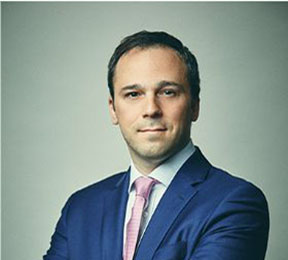Bloomberg
US authorities conducting a criminal probe into how Morgan Stanley executives handle block trades are examining recordings of phone calls between the bank and outside fund managers, according to people with knowledge of the inquiry.
The recordings involve conversations between Pawan Passi, one of Morgan Stanley’s top equities executives in block trades, and investing clients, the people said, asking not to be identified discussing the confidential investigation. The use of such invasive information-gathering underscores how a civil inquiry opened by the Securities and Exchange Commission in 2018 has escalated, with the Justice Department launching an inquiry too.
Passi, whose role in the probe was reported by Bloomberg, isn’t the only person at Morgan Stanley whose actions are drawing scrutiny. The Justice Department has been seeking communications between clients and Morgan Stanley executives including Evan Damast, the firm’s global head of equity and fixed-income syndicate, John Paci, a senior equities trading executive, and Charles Leisure on the syndicate desk, the people said. Neither they, nor Passi, have been accused of wrongdoing.
Spokespeople for the bank, the Justice Department and SEC had no immediate comment. There was no immediate response to messages sent to Leisure, Damast and Paci. Passi, who was put on leave in November, also hasn’t responded to requests for comment.
Morgan Stanley, which has ascended to Wall Street’s top spot in block trading in recent years, is now at the center of a sprawling probe examining how bankers work with hedge funds and other buyers to privately carry out the share sales big enough to send market prices swooning.
Authorities are also looking into the actions of money managers and at least one other competitor, Goldman Sachs Group Inc., people familiar with the matter have said. The opening of a probe doesn’t necessarily mean that civil or criminal charges will follow.
The years-long investigation gained momentum after the high-profile unraveling of Bill Hwang’s family office, Archegos Capital Management, last March, people with knowledge of the matter have said. To minimize their own losses during the unwinding of Archegos’s multibillion-dollar stock bets, banks including Morgan Stanley and Goldman raced to unload large blocks of shares. The hasty sales sent prices of several companies swooning. Authorities soon began digging into how it unfolded.
Investment banks are supposed to carry out block trades with discretion — acquiring a slug of stock at a discount, then parceling out the shares to new investors at a slight premium. If word of a sale leaks prematurely, it can send a stock price tumbling in the open market, potentially paring returns for the block’s seller or leaving the bank itself with a loss.
Yet block trading has drawn complaints for years — both from sellers who point to price declines before the disposals are done, and from investors, who say there’s pressure to buy into the transactions in order to get favourable treatment in other bank-led deals, such as initial public offerings.
 The Gulf Time Newspaper One of the finest business newspapers in the UAE brought to you by our professional writers and editors.
The Gulf Time Newspaper One of the finest business newspapers in the UAE brought to you by our professional writers and editors.
